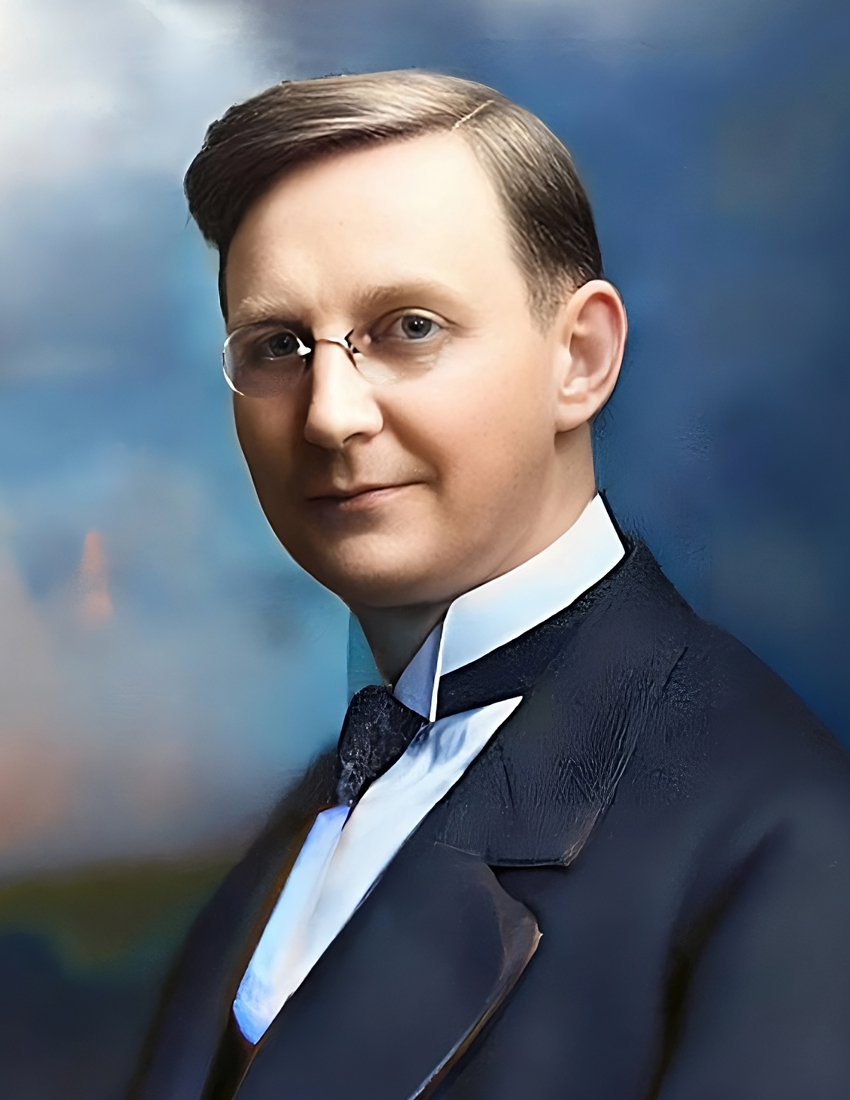Born: January 21, 1870, Marion, NY.
Died: July 29, 1957, Pittsburg, KS.
Buried: Oakwood Cemetery, Baldwin City, KS.
William M. Runyan

Hymns by William Runyan
Early Life and Musical Beginnings
William Marion Runyan was born on January 21, 1870, in Marion, New York, to Rev. William White Runyan, a Methodist minister, and his wife, Hannah (Orcutt) Runyan. From a young age, William showed a keen interest in music, often serving as a church organist at the tender age of twelve. This early involvement in church music set the stage for his future contributions to hymnody.
In 1884, the Runyan family moved to Marion, Kansas, where William continued to hone his musical skills. As a teenager, he became a successful music teacher, sharing his passion and knowledge with others.
Ordination and Ministry
At the age of twenty-one, Runyan was ordained as a Methodist minister. He faithfully served various congregations in Kansas for twelve years, dedicating his life to spreading the Gospel and ministering to those in need.
In 1903, Runyan was appointed as an evangelist for the Central Kansas Methodist Conference, a role in which he continued to touch lives and bring people closer to God.
Encouragement from D.B. Towner
In 1915, William Runyan began writing gospel songs, encouraged by D.B. Towner of the Moody Bible Institute. Towner’s support and guidance played a significant role in Runyan’s development as a hymn writer and composer, setting the stage for his future contributions to sacred music.
Friendship and Collaboration with Thomas Chisholm
During his ministry, William Runyan formed a close friendship with Thomas Chisholm, a fellow Methodist minister and poet. Chisholm had a difficult early adult life, often confined to bed due to poor health and struggling to make ends meet. However, he found solace in the Scriptures and the assurance of God’s faithfulness.
Chisholm and Runyan often exchanged letters, which included several of Chisholm’s poems. One of these poems, “Great Is Thy Faithfulness,” particularly moved Runyan, inspiring him to compose a musical score to accompany the lyrics.
The Birth of a Timeless Hymn
In 1923, “Great Is Thy Faithfulness” was published. The hymn, born from the friendship and collaboration between Thomas Chisholm and William Runyan, would go on to become one of the most beloved hymns of all time.
Initially, the hymn received little recognition. However, it caught the attention of a Moody Bible Institute professor who loved it so much that he frequently requested it to be sung at chapel services. As a result, “Great Is Thy Faithfulness” became the unofficial theme song of the college.
It wasn’t until 1945, when George Beverly Shea began to sing the hymn at Billy Graham’s evangelistic crusades, that “Great Is Thy Faithfulness” was heard around the world, touching the hearts of countless believers.
George Beverly Shea sings Great Is Thy Faithfulness
Ministry, Editorial Work, and Personal Devotion
Beyond his role as a composer, William Marion Runyan was deeply involved in ministry and editorial work. He served as pastor at the Federated Church in Sulphur Springs, Arkansas, and as an editor for the Christian Workers’ Magazine and the Hope Publishing Company. His editorial roles highlight his influence in the broader Christian community.
Runyan’s dedication to his faith and music was evident in his lifelong service to the church and his creation of numerous hymn texts, gospel songs, and hymn tunes. His commitment to religious music was not just a profession but a personal devotion.
Legacy and Impact
William Marion Runyan’s legacy lives on through the enduring popularity of “Great Is Thy Faithfulness.” The hymn continues to inspire and uplift believers around the world, serving as a testament to God’s unwavering love and faithfulness.
William Runyan’s life and work serve as an example of how God can use our talents, friendships, and the encouragement of others to create something beautiful and lasting. As we sing “Great Is Thy Faithfulness,” let us remember the story behind the hymn and the faithful servants who brought it to life.
“Great is Thy faithfulness, O God my Father; There is no shadow of turning with Thee; Thou changest not, Thy compassions, they fail not; As Thou hast been, Thou forever will be.”

